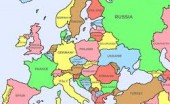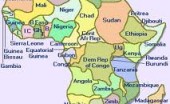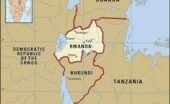Re Ian Bremmer 'Could third-party candidates upend the 2024 US election?' 3 April The current political movement in the USA…
EU and European Council
Written by Diana Thebaud Nicholson // December 30, 2010 // Economy, Europe & EU, Foreign Policy, Geopolitics, Government & Governance, Immigration/migration, U.S. // 1 Comment
The European Commission
Blogs of the European Commissioners
Hungary Risks Image at EU Helm as Orban Increases Power Over Courts, Media
(Bloomberg) The European Union’s charter calls for respect for the rule of law, human rights, economic progress and media freedom. Some in Brussels are wondering whether Hungarian Prime Minister Viktor Orban, whose country takes over the rotating EU presidency on Jan. 1, has read it.
In the seven months since Orban came to power with a two- thirds parliamentary majority, he has implemented retroactive taxes in violation of the constitution, curbed the Constitutional Court’s power, effectively nationalized private pension funds and put ruling-party allies in charge of at least four independent institutions, including the audit office.
28 December
Hungary’s ‘Orbanization’ Is Worrying Europe
(Spiegel) The move by Hungary’s right-wing government to muzzle the media is the most recent example of a disturbing political trend in the country that was once hailed as a model for post-commununist development. Should Europe impose sanctions just as Hungary is about to assume the rotating EU presidency?
The rotating chairmanship of the European Union, which Hungary assumes on Jan. 1, will not represent the culmination of a successful story. In fact, the opposite could be the case. Because of its policies, Budapest could now “be in for some serious problems,” Martin Schulz, the parliamentary leader of the Social Democrats in the European Parliament said last Tuesday. Luxembourg Foreign Minister Jean Asselborn went a step further, accusing the Hungarian government of violating “the spirit and text of the EU treaties.” “The question arises,” he continued, “as to whether such a country deserves to lead the EU. If we don’t do anything, it will be very difficult to talk to China or Iran about human rights.”
A great deal of anger has been building up. The fact that Prime Minister Viktor Orbán has just cold-bloodedly pushed through a law that muzzles the press, only a few days before he steps onto the pan-European stage, is just the final straw. It has been a last, and possibly decisive step towards autocracy.
15 December
European Union and Canada on track for sweeping trade deal
(Toronto Star) The EU deal is Canada’s most ambitious negotiation since the free trade agreement with the United States, [Trade Minister Peter] Van Loan said.
Removing trade barriers with Europe would increase trade by 20 per cent and provide a $12 billion annual boost to the Canadian economy each year, he added. “That’s what’s at stake. A lot of opportunities on the services side, labour mobility and investment, access for goods,” Van Loan said.
3 December
EU needs to choose its words with care after annus horribilis
Austerity, division and reviving nationalism dominate in an EU that imagined it had banished me-first politics
Kicking off in Copenhagen and ending in Brussels, it has been an annus horribilis for Europe. In Denmark a year ago, Europe’s leaders strode to the front of the queue to battle global warming and claim the credit. The US and China barely noticed them. The Europeans were humiliated.
The EU’s political year ends in a fortnight with a Brussels summit and another battle – how to save the euro, arguably the biggest test since the collapse of communism and the reunification of Germany 20 years ago.
Those were daunting challenges, but were tackled in a mood of great optimism when many things seemed possible. The present examination is being conducted amid deep gloom. Austerity, division and reviving nationalism dominate in an EU that imagined it had banished me-first politics.
26 November
Ireland hurries bailout deal as Portugal and Spain deny need for aid
(The Guardian) Ireland’s borrowing costs hit record levels above 9% as byelection loss for Fianna Fáil signals public dissatisfaction
18 November
Europe and America, Aligned for the Future
By BARACK OBAMA
(NYT via IHT) With this week’s NATO and United States-European Union summit meetings in Lisbon, I am proud to have visited Europe a half-dozen times as president. This reflects an enduring truth of American foreign policy — our relationship with our European allies and partners is the cornerstone of our engagement with the world, and a catalyst for global cooperation.
With no other region does the United States have such a close alignment of values, interests, capabilities and goals. With the largest economic relationship in the world, trans-Atlantic trade supports millions of jobs in the United States and Europe and forms a foundation of our efforts to sustain the global economic recovery.
28 October
Disgracefully, Turkey’s EU accession bid is going nowhere soon
(The Guardian) As a weak Europe frets over Turkey’s membership, the booming south-eastern nation is increasingly thinking: why bother?
Seen from Turkey, the squabble about the EU budget seems like fiddling while Brussels burns. In the Turkish perspective, the large issues for Europe should not be the latest carve-up of the budgetary cake, or the palace power struggle between the European parliament and the member states, or even the necessary budgetary disciplines that Germany demands of its more rule-resistant partners and to which economically booming Turkey, unlike its economically wracked neighbour Greece, could sign up with barely a second’s thought.
Seen from the south-eastern corner of Europe, the big issues are ones worthy of the name. Like whether the Europe of 2025 will have a large enough working population to sustain its burdened welfare budgets and social care systems into the mid-century; whether the Christian and secular majorities in 21st-century Europe can share their streets with Muslims; whether there will be enough gas and electricity coming reliably into Europe to prevent the lights going out in our lifetime, and whether Europe is serious and coherent about maintaining its security against threats from places such as Russia or Iran.
Is Turkey turning its back on the West?
No. But it might if Europe and America cannot come to terms with its success
(The Economist) ITS strategic position, next to the Middle East and Russia and astride Europe and Asia, means that Turkey has always mattered. But over the past decade its significance has hugely increased.
29 September
Roma ultimatum given to France by EU: allow free movement or face court
Brussels ups ante in row over Gypsy expulsions as European commissioners vote unanimously for action
17 September
Valéry Giscard d’Estaing, President of the Convention on the Future of Europe:
‘To Build a Society, You Need A Sense of Belonging’
(TIME Interview) … We succeeded in clarifying a question: where and how the Union intervenes. We made an open limitation of competences, which was never clearly made before. There was a strong demand from public opinion to know what the Union does and what the national governments do. That’s now set, and it can be changed only by very difficult constitutional amendment. We have some exclusive competences of the Union where it’s the main actor, shared competences where the Union and the states act more or less jointly. All the rest is common or national action by the states. It’s clear and the instruments are adapted to that situation.
16 September
Nicolas Sarkozy rounds on critics and vows to keep dismantling Roma camps
French president denies his government is unfairly targeting Gypsies after spat with Jose Manuel Barroso at EU summit
(The Guardian) According to EU ambassadors and several officials, the organisation of the summit was “shambolic” and “chaotic”, with Herman Van Rompuy, the European council president, and Catherine Ashton, the EU’s foreign policy chief, being blamed for the poor preparation. But the Roma issue overshadowed everything else.
3 July 2008
France takes over rotating EU presidency from Slovenia
(BBC) French President Nicolas Sarkozy has said “something isn’t right” with the European Union, as France took over the rotating presidency of the bloc.
Speaking on national French TV, Mr Sarkozy warned that Europe’s citizens were losing faith in the project.Correspondents say France’s grandiose EU presidency plans are in doubt after the Irish Lisbon treaty No vote.Poland’s president reportedly said it would be pointless for him to sign the treaty, given Ireland’s rejection.




One Comment on "EU and European Council"
From a European observer:
It is quite true that we are in dire straits. It is even more true that we lack strong, capable leadership here. Bad mistakes have been made. Nations were accepted without meeting the criteria. Banks have been criminally greedy, etc., etc. The difficulties are serious and the problems huge. However:
The wishful thinking in America that the Euro will fail, is not to be. Many commentators there and elsewhere seem to forget the interests of one major player in this drama: China. She has much greater influence on the future of Euro than does the US. The core of the Eurozone is rather healthy and China will not let the currency fail. According to … a very, very experienced source [in Asia], China is changing and increasing part of her foreign reserves from dollars to euros.
The EU is a mess and hardly functions. But we spend our wealth on education and to narrow the gap between social classes (and nations) [emphasis added]. There is an immense reserve of well educated people and our economy is bigger than [that of] the US. I am worried but not hopeless at all.
In the Brave New World there will be players like India and Brazil. The days of US hegemony are more or less over and a new order is forming.
The EU will have a place in it and hopefully Canada will again be “a like-minded country”.